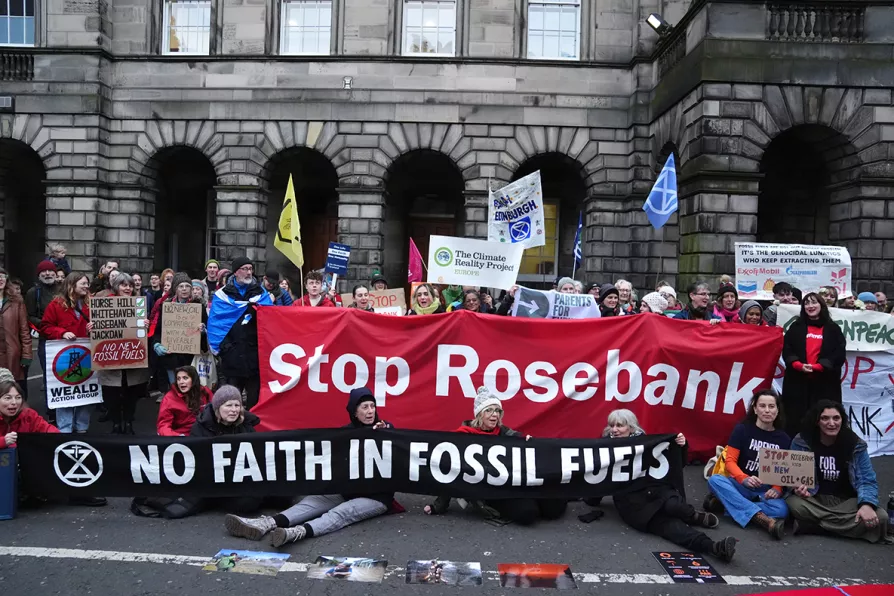Hundreds protested against the US-Israel attacks on Iran in Parliament Square on Saturday, fearing a wider conflagration and horrified by the targeting of young schoolchildren, writes LINDA PENTZ GUNTER
The neoliberal approach to energy is failing Scotland
There is little benefit coming to Scotland or the wider UK from projects like Rosebank or Jackdaw – or indeed renewables – as profits are siphoned out of the country by foreign companies, writes PAULINE BRYAN

 Climate activists from Greenpeace and Uplift during a demonstration outside the Scottish Court of Session, Edinburgh, on the first day of the Rosebank and Jackdaw judicial review hearing, November 12, 2024
Climate activists from Greenpeace and Uplift during a demonstration outside the Scottish Court of Session, Edinburgh, on the first day of the Rosebank and Jackdaw judicial review hearing, November 12, 2024
THE last time there was a Labour government in Westminster and an SNP government in Holyrood was 18 years ago. That was in the middle of a financial crisis and only lasted two years. 2010 was the first time that a Scottish government had to deal with a Tory UK government.
Now there is a Labour government back in Westminster, is there clear red water between Labour and the SNP?
On January 30 the Court of Session in Edinburgh ruled that the consent that had been given for new Scottish oil and gas fields, Rosebank and Jackdaw, was unlawful and that their owners must seek fresh approval from the UK government before production could begin.
Similar stories














